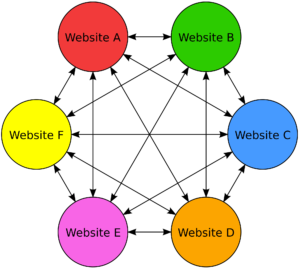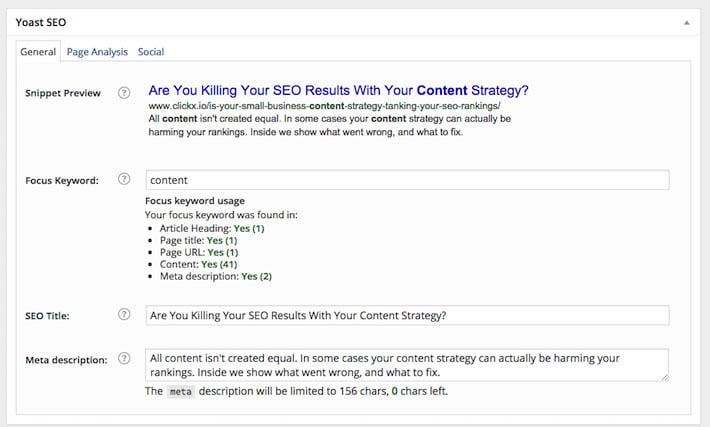Is Your Small Business Content Strategy Tanking Your SEO Rankings?
To succeed as a small business online, you’re going to need a content strategy specifically designed to support your SEO efforts. A lot of small business owners jump the gun when they hear this and immediately start frantically creating content left, right and center in a vain attempt to appease the search engine gods.
In some cases, a non-existent content strategy is better than a poorly thought out one. There’s no point in wasting resources on content strategy unless you’re doing it right; get it wrong and you could actually be tanking your search engine rankings.
If you’ve been plugging away for a while and aren’t seeing the results you think you deserve, you could be making some of the small business content strategy mistakes we’ll cover in this article. Read on to discover what not to do!

Publishing Content That Isn’t Up to Scratch

Let’s not sugarcoat it—sometimes the problem is simply low-quality content. Fail to recognize this and you’re heading for a Google smackdown.
Before you even create a single piece of content, you should ask yourself:
- Why would anyone read this?
- What’s the value they’re going to get if they do?
Answer the above questions honestly and you’ll know if your topic is worth pursuing.
Don’t get bogged down with word counts either. The length of your content isn’t as important as the information you’re offering—and the value it gives to the reader. Experiment with your content mix until you find a formula your audience loves and your rankings will naturally rise, regardless of length.
Publishing Without a Focused Local Strategy
Google values websites that publish a lot of fresh content, but not any old kind of content will do. You need to be strategic and stay local. Chase broad, national topics and you’re swimming against the tide—the competition is simply too strong for most small businesses. Get local and get specific.
Drill down on events in your immediate environment. Get laser-focused on local stories, news, and personalities. Aim to be the go-to online resource in your geographical area for the topics that matter to your audience.

Looking for Link Love in All the Wrong Places
Getting your hands on quality inbound links is obviously at the heart of any small business content strategy but you need to exercise caution—especially with guest posting. Google are on record in warning against low-quality guest blogging so if you’ve been frantically guest blogging solely for link juice, it’s a good time to stop.
Done right, guest blogging can still be incredibly effective for building your authority, driving traffic, and increasing sales. You just need to adjust your strategy.
Trying Too Hard to Appease Google
Are you over-optimizing your content? Engaging in shady practices like keyword stuffing? Unfortunately, many small business owners are still naive enough to try this in 2015. It’s a game simply not worth playing.
When you over-optimize a blog post around a specific keyword, you immediately raise a red flag for Google that you’re trying to game the system. Expect to see your rankings plummet if you’re trying this.
By all means, use keyword research to help you decide which topics to focus your content around, but your posts must still be written with actual people in mind.
[Tweet “Top rated content today is written for readers first and the search engines second.”]
A lot of business owners think they aren’t sailing too close to the wind simply because they aren’t keyword stuffing their posts but there are many other ways to get this wrong. Let’s look at three in particular briefly.
1. Keyword-Rich Internal Links
Don’t over-optimize internal links by having every link use the same keyword. You need a diverse internal link profile to stay on the right side of the line so make sure you’re following sensible linking guidelines.
2. Linking to Low-Quality Sites
As the old saying goes, you’re the average of the five people you spend the most time with. The sites you link out to are almost as important as the sites that link to you.
If you happen to link out to spammy or low-quality sites, Google will assume your site is of similar quality. Instead, try to focus on linking to relevant, high-quality websites within your niche.

3. Too Many Keywords in URLs
If your main URLs are stuffed with too many keywords, it’s not going to be a boost for your rankings. Include keywords if they make sense for your brand, but don’t force the matter.
Ignoring Obvious Optimizations
Over-optimization is a recipe for SEO disaster, but you should definitely make that sure you’re covering the basics. Intuitive tools like Yoast SEO enable even non-technical users to get things right.

Useful and engaging content is the first step towards creating content that ranks, and you can take that even further by performing basic on-page optimization. Here are three of the main points to hit.
1. Incorporate Your Keyword in Your Title
If possible, include your target keyword at the beginning of your title. The closer to the beginning of the title, the more weight it will have.
2. Write a Custom Meta Description

Your optimized meta description will look like this in the search results, so make sure that it’s compelling.
Your meta description is the description users see in the search results before clicking over to your site. Include your main keyword, write it with a human in mind, and do your best to attract visitors in the space provided.
3. Include Keyword Groups Where Possible
You’ll want to be hitting more than one keyword in your post. The smart way to do this is by focusing on keyword groups. For instance, if you’re trying to rank for “Dallas electrician”, your post should also include keywords like “finding the best Dallas Electrician”, “top electrician in Dallas”, and other sensible variants.
Conclusion
Your content marketing and SEO efforts need to work hand in hand. By avoiding the traps above, you’ll be able to repair any mistakes you might already have made, and confidently move forward with a content strategy geared firmly towards a local audience.
Stick at it over time and you’ll naturally find your small business site gliding serenely up the rankings, and your local competitors gnashing their teeth as you increasingly dominate.
We’d love to hear about your experiences in terms of small business content strategy and SEO. Have you run foul of Google? Or found tactics that drove success? Got any tips to share? Let us know all about it in the comments!



